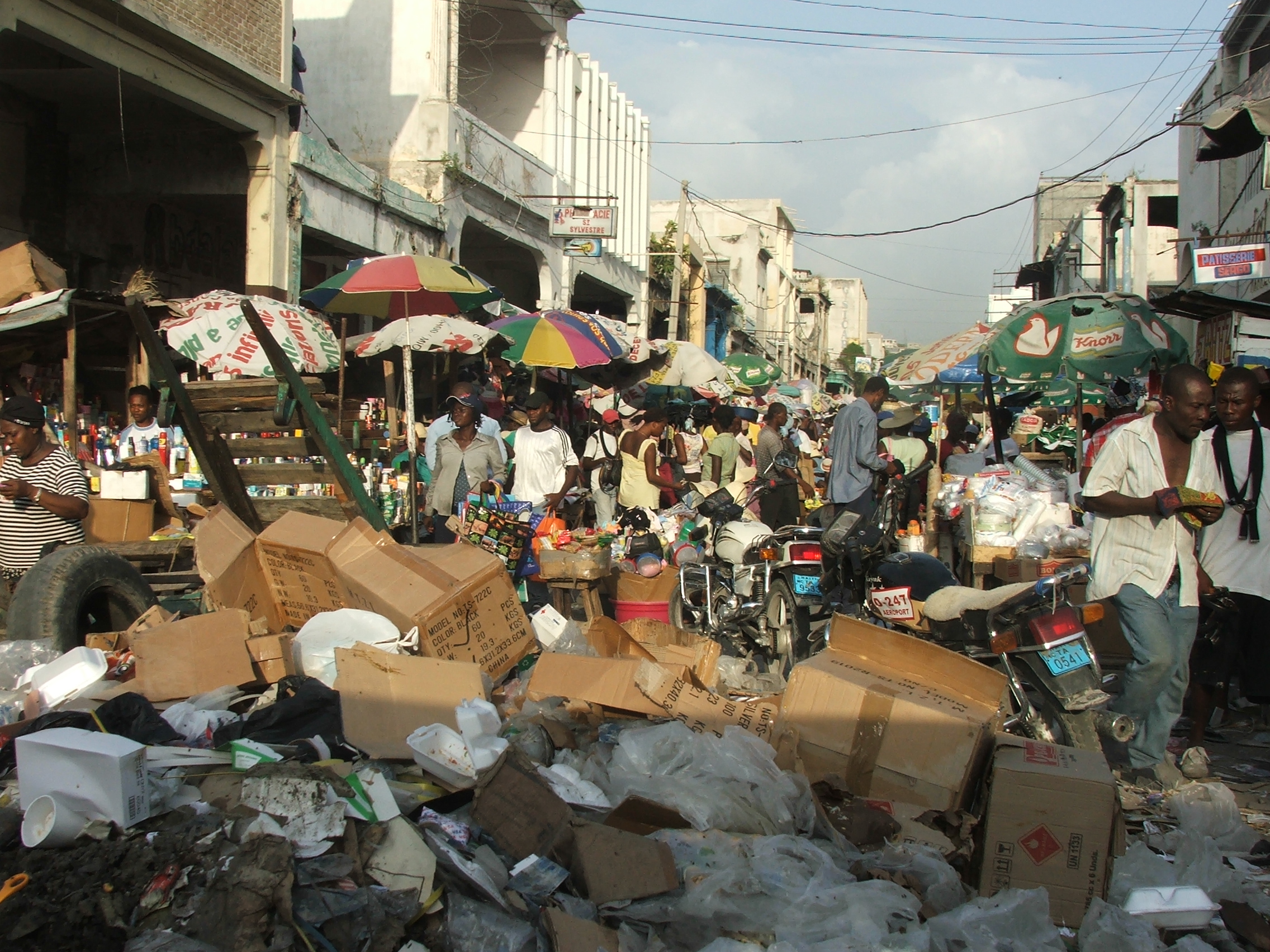The price of freedom
Featured, Haiti — By Richard Albert on January 22, 2010 at 8:00 amThe latest tragedy to befall Haiti was not an act of God. It was a failure of humanity.
The death and disaster in Haiti are the direct result of the world’s failure to repay its greatest debt to a heroic nation whose citizens stood up for freedom at a time when others wilted in the face of tyranny.
 It was the Haitian Revolution of 1804 that launched the world along a new trajectory toward liberty. Before that historic moment, there was no such thing as the righteous rule of law. What reigned instead was the repressive rule of man.
It was the Haitian Revolution of 1804 that launched the world along a new trajectory toward liberty. Before that historic moment, there was no such thing as the righteous rule of law. What reigned instead was the repressive rule of man.
In freeing themselves from the jaws of injustice, Haitians quickened the pace of justice for all women and men around the globe. But Haitians paid the ultimate price for their freedom.
Today’s stable and prosperous democracies—countries which owe their stability and prosperity in large part to the Haitian Revolution—have been derelict in their duty to redress the harm they have done to what was once the pearl of the Antilles. The world’s great democracies have been built on the bloodied backs of Haitians, and the beneficiaries of Haiti’s sacrifices have yet to acknowledge their complicity in Haiti’s impeded development.
It is time to make amends.
Since rising nobly in a glorious yet improbable victory to win its independence, Haiti has languished in despair, contrary to the auspicious beginnings that the Haitian Revolution foretold. Only twenty years after defeating the French, Haiti was forced to pay a sum of $21 billion to France in exchange for official recognition from the international community—a crippling sum for a young nation still recovering from the devastation of slavery and the aftermath of war. And as if that were not enough to mire a nascent state in the depths of ruin, Haiti endured, though barely survived, civil wars and foreign-led coups during its first hundred years of independence.
Any hope that Haitians may have had for their second century of independence was quickly extinguished when the American military occupied the Caribbean oasis for two decades. Even after American soldiers departed the country in 1937, the United States continued to meddle in Haiti. The United States installed hand-picked rulers into the presidency and sponsored dictators who consolidated power and diverted precious Haitian natural resources away from the national trust and abroad to foreign interests. The same story has repeated itself year after year to this very decade.
Meanwhile, the narrative could not differ more sharply in other Caribbean nations which, like Haiti, had been the playground of remorseless imperialists but which, quite unlike Haiti, did not turn to revolution for freedom.
Given what Haitians know now about the arc of their history—and in light of the misery that time and chance have descended upon Haiti since it became the first country to free itself from the shackles of servitude—Haitians today could not be blamed for wishing that their predecessors had remained submissively within the grip of their French overlords. Because instead of being what it is today, contemporary Haiti could conceivably have achieved the same relative economic security that has taken hold in its sister states, formerly enslaved colonies, across the Caribbean.
But the proud people of Haiti do not think of life in those terms. Haitians are a people quite unlike any other in the world. They have borne the burden of adversity and misfortune almost uninterruptedly since the founding of the Haitian republic.
Haitians have overcome the pain of institutionalized inequality, withstood the contempt of foreign machinations, and ultimately triumphed over evil. Along each step in their heartbreaking history, Haitians have struck yet another match to set alight the path toward freedom for the world to follow.
Haiti, the mother of liberty and the axis of freedom, has been the catalyst for many of the human rights victories we take for granted today. For by staring down the forces of tyranny, defeating their French imperial oppressors, and casting the decisive stone against the expansionist designs of Napoleon Bonaparte, the brave people of Haiti stood as the embankment against the tide of tyranny that threatened to sweep much of civilization.
And just as Haiti stood up in 1804 for freedom in the world, it is now up to the world to stand up for Haiti.
 It is time for the world to breathe hope into the hearts of Haitians. The world must repay its debt by filling the soul of Haitians with optimism about the promising possibilities for tomorrow. Not with the mere words that Haitians have grown accustomed to hearing from the international community but rather with real deeds that result in real progress.
It is time for the world to breathe hope into the hearts of Haitians. The world must repay its debt by filling the soul of Haitians with optimism about the promising possibilities for tomorrow. Not with the mere words that Haitians have grown accustomed to hearing from the international community but rather with real deeds that result in real progress.
Reconstructing the state, rebuilding its broken infrastructure, replenishing its depleted resources, and reinvesting, this time equitably, in its national economy—that is what the world owes Haiti.
The world must serenade Haiti with the same song of peace and justice that Haiti sang for humanity at its first revolution. Haiti’s second revolution must be one in which all freedom-loving people join together to heal her, to sustain her, and to ensure that her promise can finally come to be lived by the very people who brought the world its freedom.
Tags: corruption, Haiti, Politics, Poverty, restructure, Talking about RaceAuthor: Richard Albert (8 Articles)

Richard Albert, a graduate of Yale, Oxford, and Harvard, is an Assistant Professor at Boston College Law School, where he specializes in constitutional law and democratic theory. He writes about constitutional politics, the separation of powers, the role of courts in liberal democracy, and religion in public life.


 Share This
Share This Tweet This
Tweet This Digg This
Digg This Save to delicious
Save to delicious Stumble it
Stumble it





 Waste` (wash-tay) Chicago; Omaha no good
Waste` (wash-tay) Chicago; Omaha no good Demanding to be seen and heard: Latino immigrant organizing in Houston
Demanding to be seen and heard: Latino immigrant organizing in Houston Why rich steal from poor? Because they can
Why rich steal from poor? Because they can







